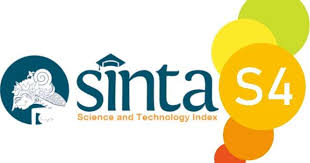TeleOTIVA: Advanced AI-Powered Automated Screening System for Early Detection of Precancerous Lesions
Keywords:
Screening, VIA, Telemedicine, artificial intelligenceAbstract
In 2023, the Indonesian Ministry of Health launched the Rencana Aksi Nasional (RAN) to enhance the detection and management of cervical cancer in Indonesia. One of the main pillars in this movement is the implementation of early screening for precancerous lesions aimed at identifying and treating these lesions before they develop into cervical cancer. This effort includes improving public access to healthcare services, providing education and awareness about the importance of early detection, and utilizing the latest technology in screening procedures. It is hoped that, through these targeted and effective interventions, the incidence of cervical cancer can be significantly reduced. This research aims to facilitate the early detection screening process for cervical precancerous lesions, particularly in difficult areas for medical experts to reach. This study also seeks to assist obstetricians and gynecologists in detecting precancerous lesions automatically, quickly, and accurately. By developing an advanced technology-based screening system, it is hoped that early detection of precancerous lesions can be carried out more efficiently, thereby increasing the chances of timely treatment and reducing the incidence of cervical cancer across various regions in Indonesia. This system is designed to provide reliable and user-friendly diagnostic support as it is developed on a mobile platform that can be accessed anytime and anywhere. This research developed a system for early screening called TeleOTIVA. The TeleOTIVA application system is an advanced platform that uses artificial intelligence (AI) based approaches to provide optimal services in early detection of precancerous lesions. This application is designed for mobile, allowing users to access and use its advanced features anytime and anywhere. With the integration of AI technology, TeleOTIVA can detect and analyze cervical precancerous lesions accurately and quickly to provide accurate and efficient screening results. The TeleOTIVA application system is capable of providing satisfactory detection results. The performance of the proposed model achieves accuracy, sensitivity, and specificity levels above 90%. With this high performance, TeleOTIVA ensures that the detection of precancerous lesions is carried out with high reliability and precision, instilling greater confidence in healthcare professionals and users during the screening and diagnosis process. The implementation of our application model offers numerous advantages over traditional methods. It significantly enhances efficiency by automating processes, reduces human error through rigorous error-checking mechanisms, and accelerates the processing of large datasets. These improvements streamline operations and ensure more reliable and rapid data analysis.



